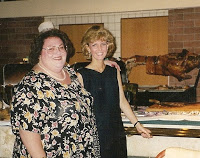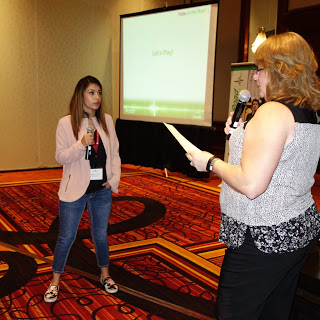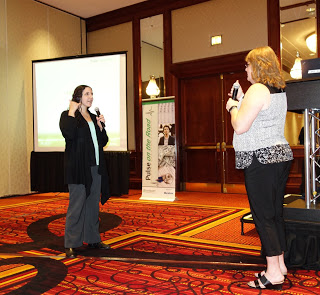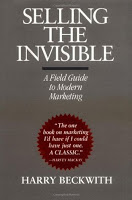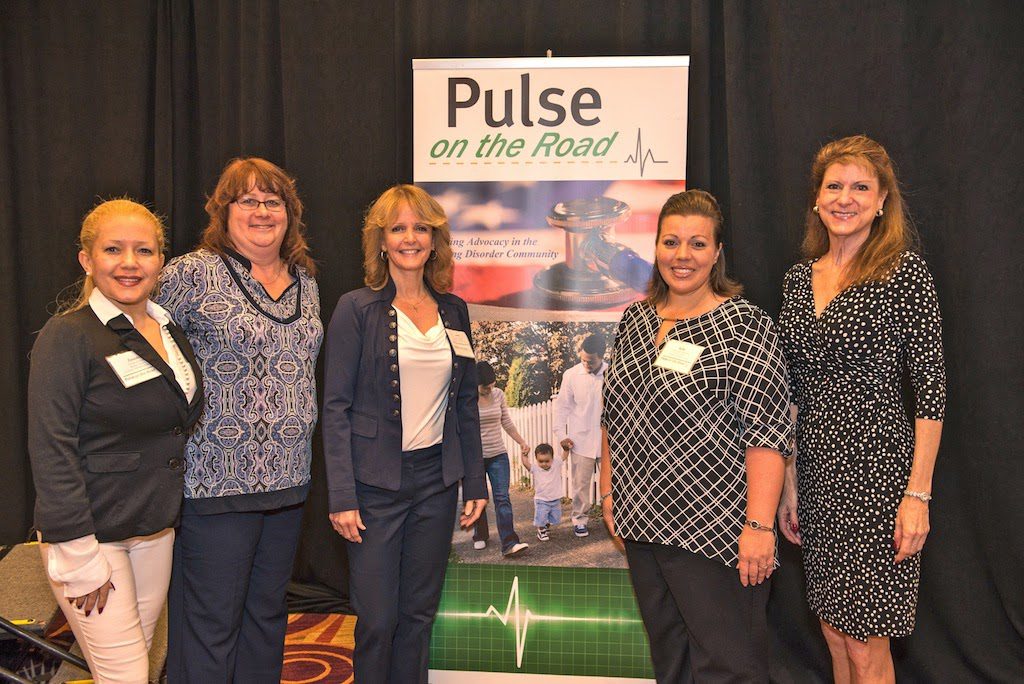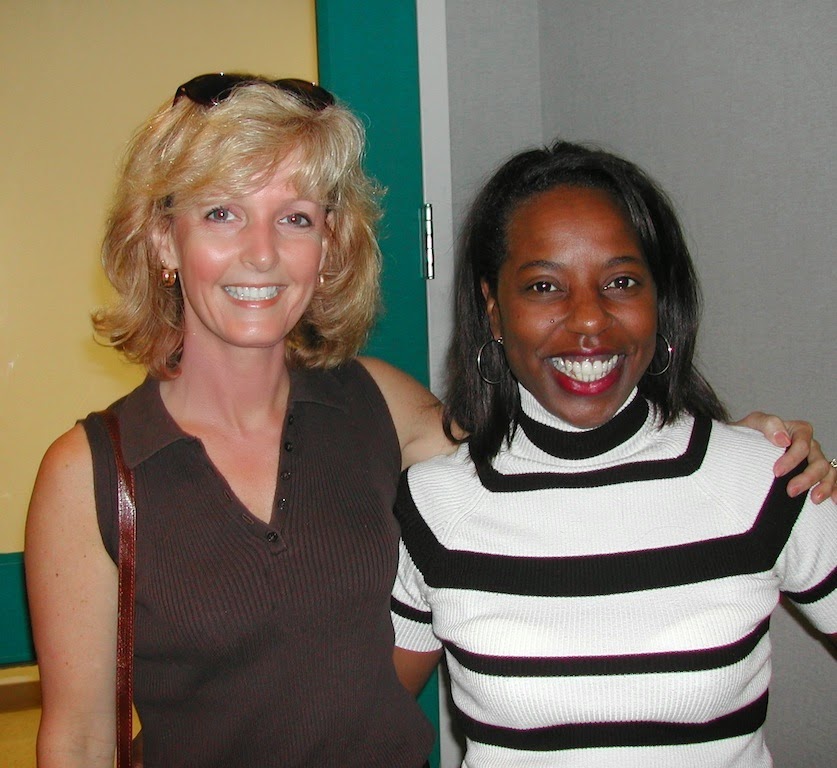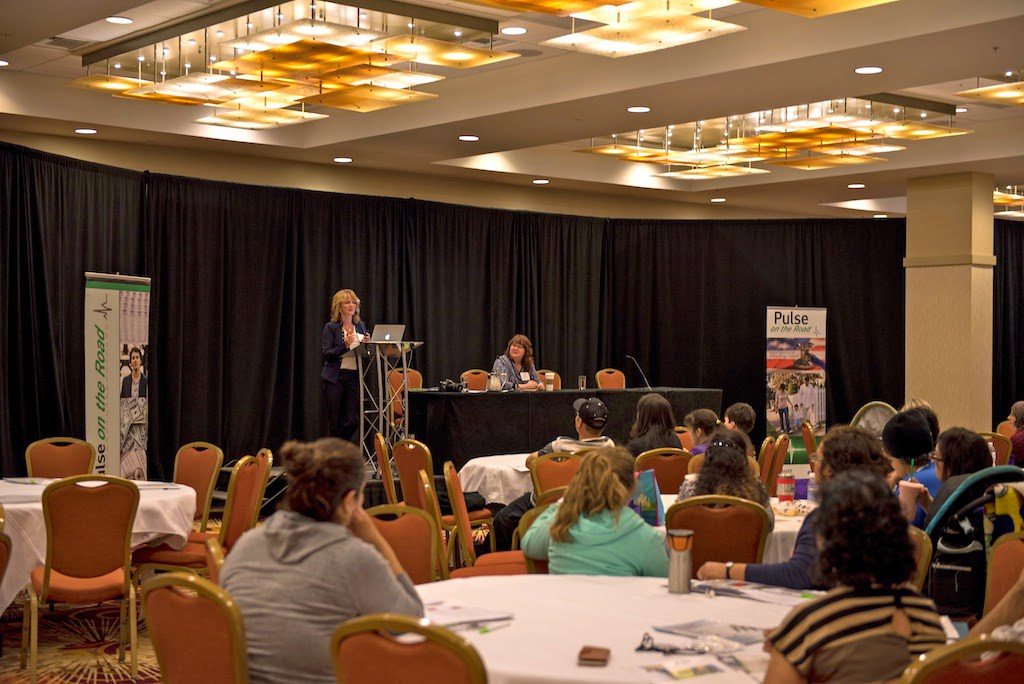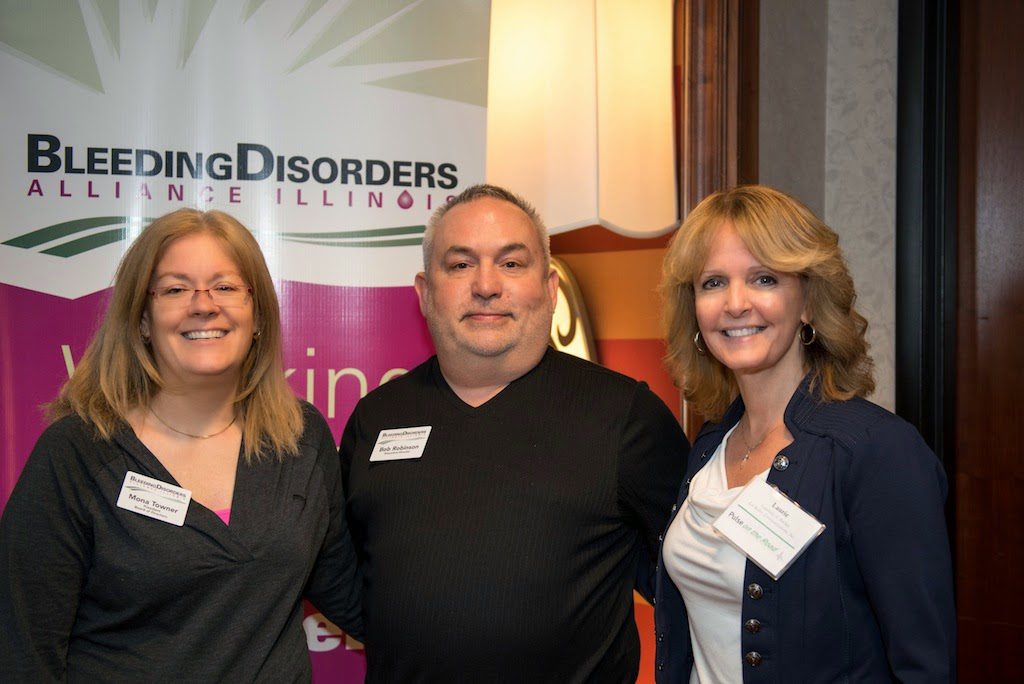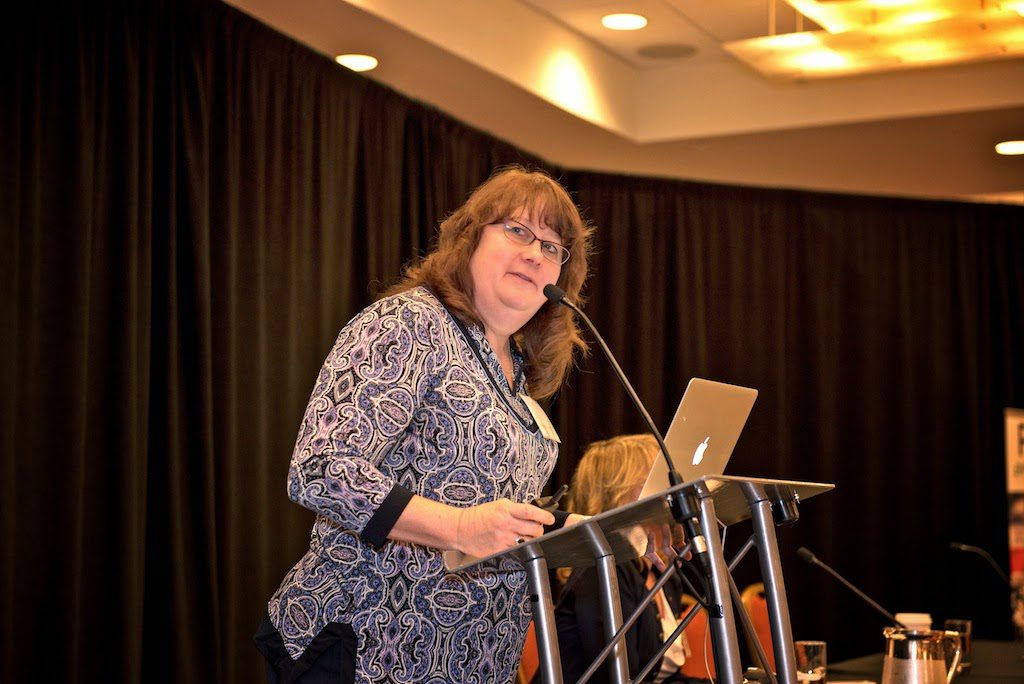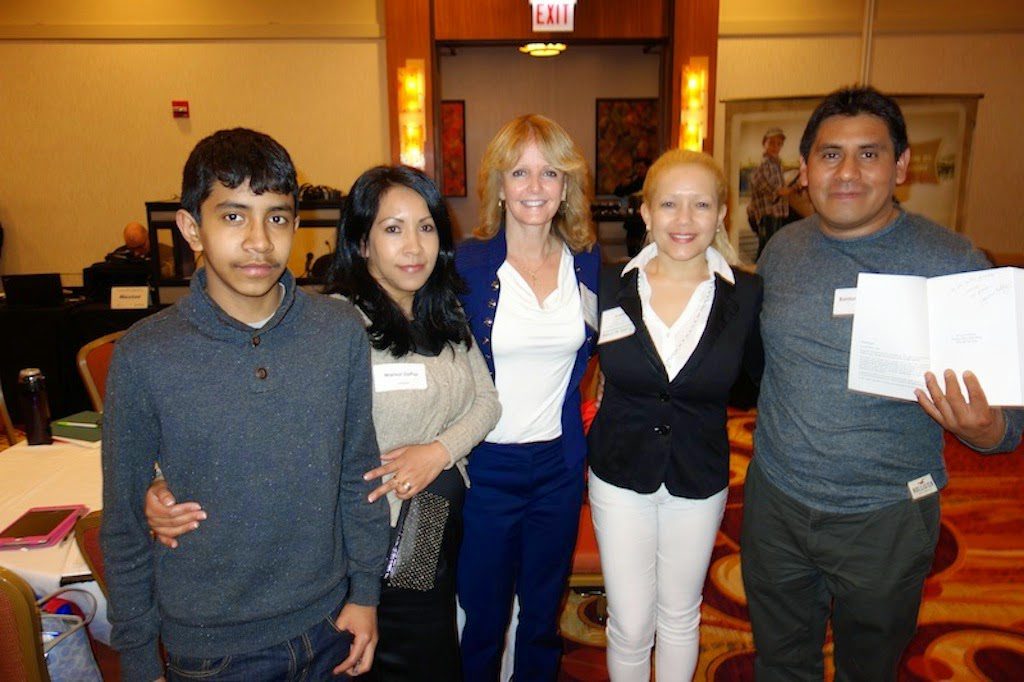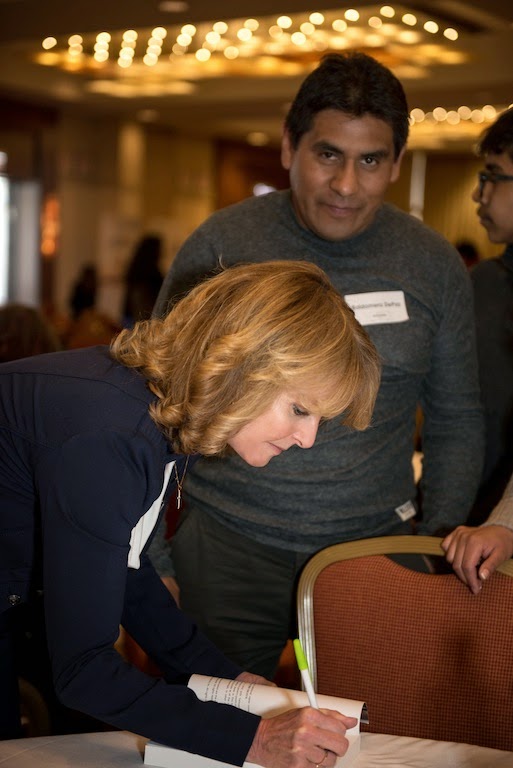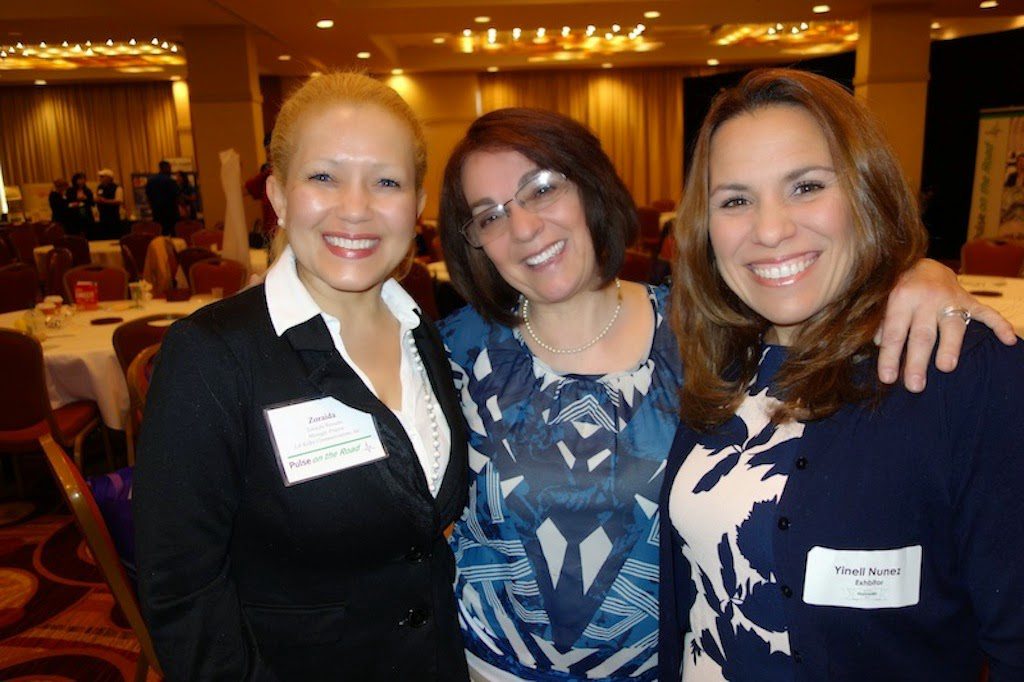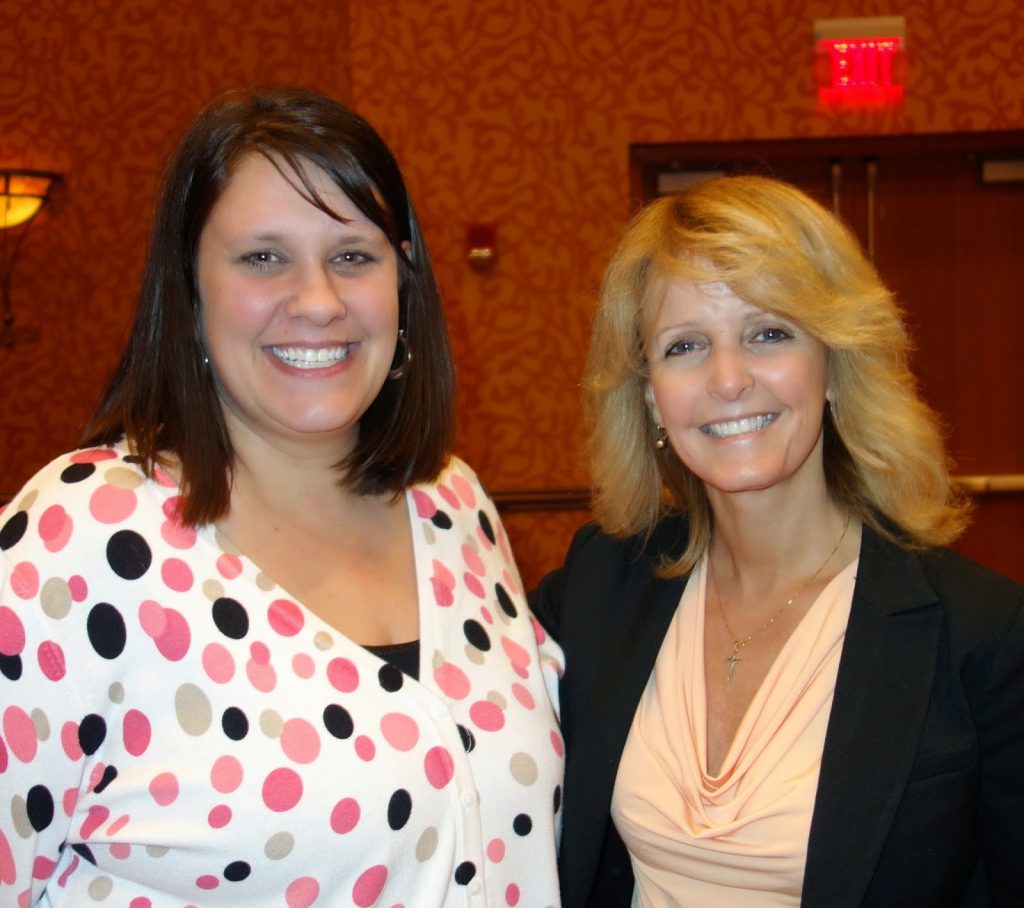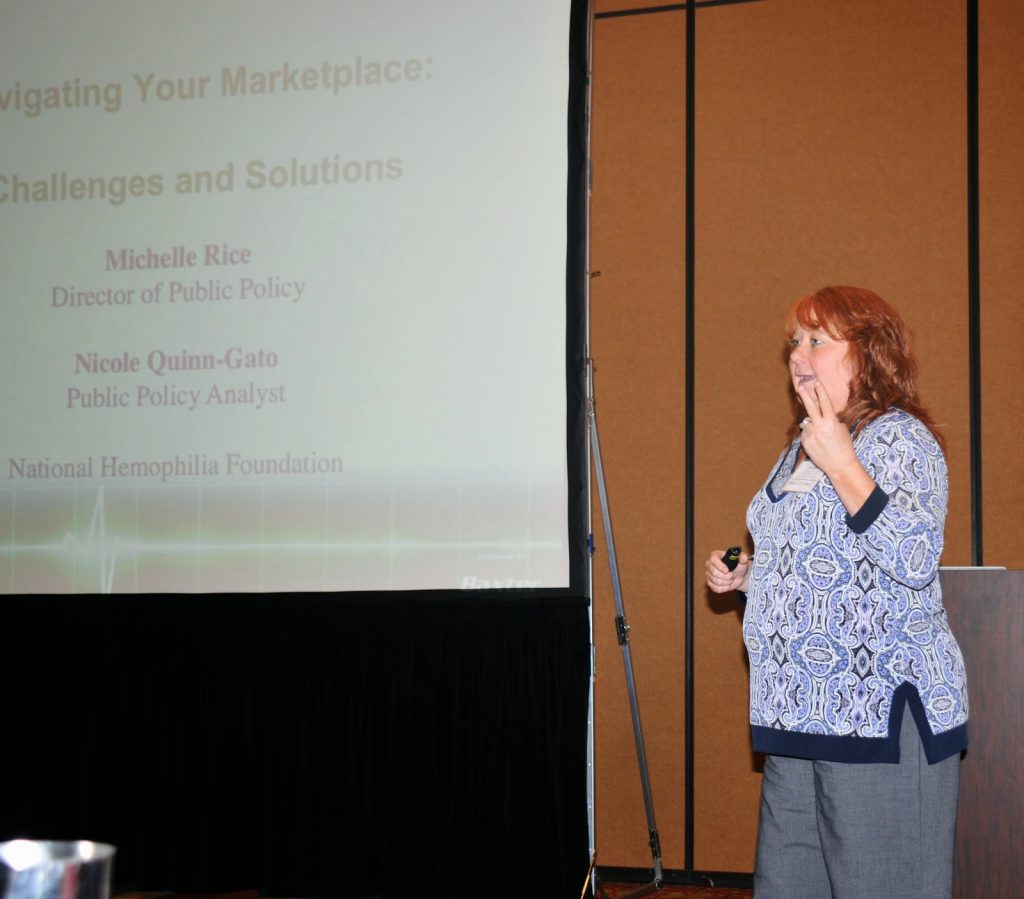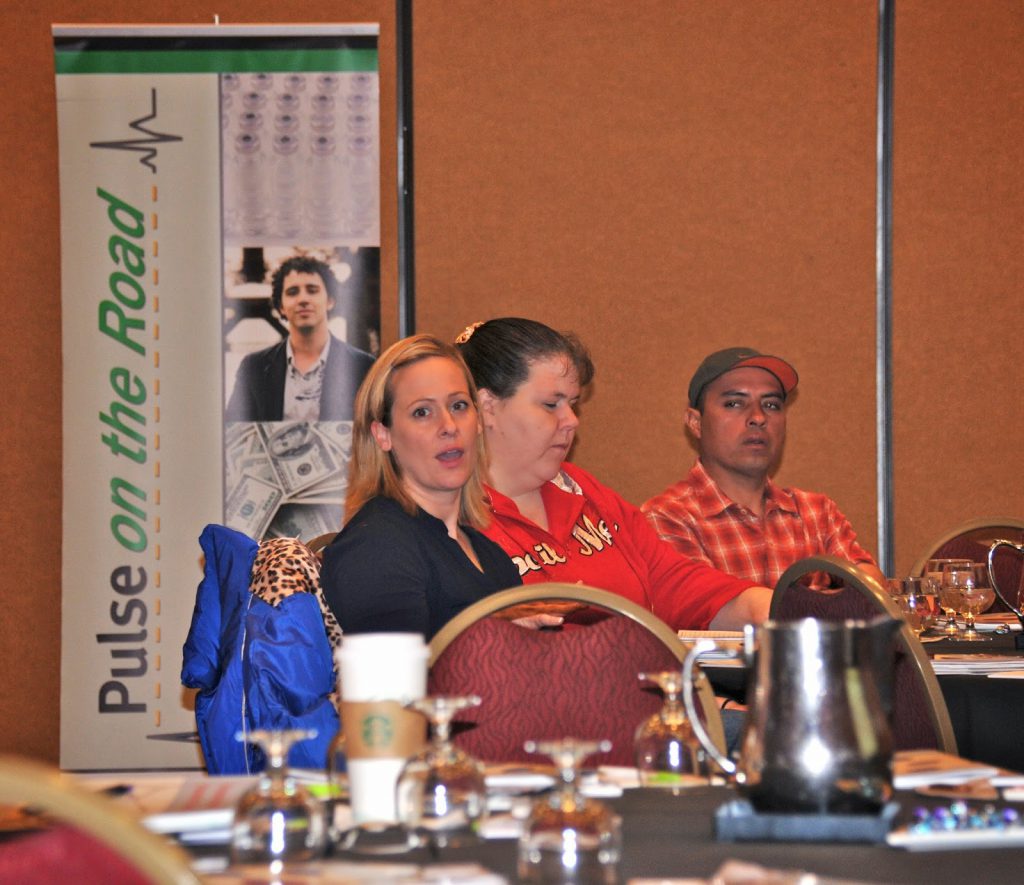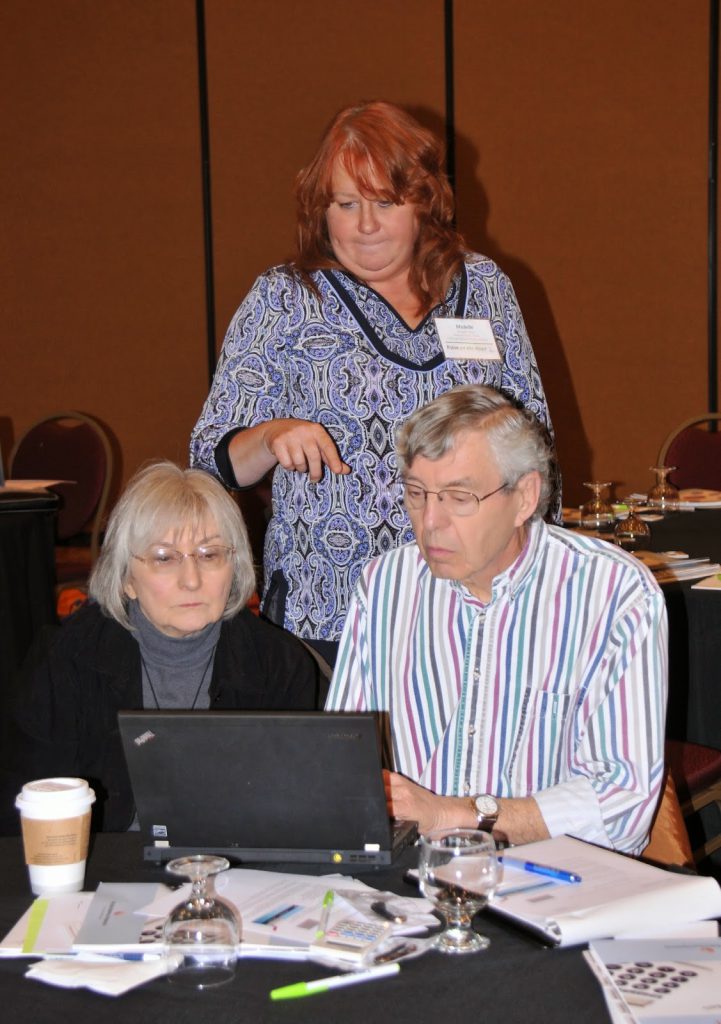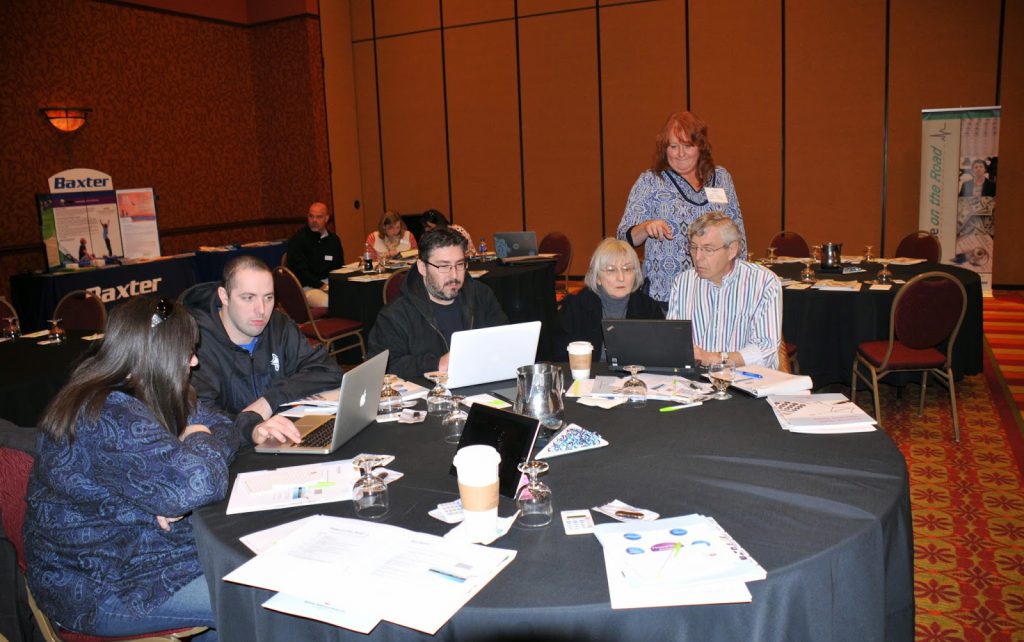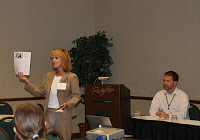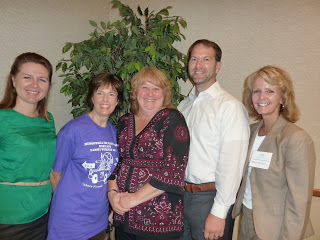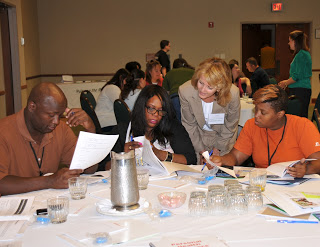Dealing the Hand Your Dealt: Pulse on the Road in Las Vegas!
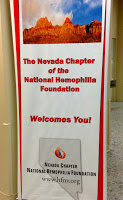
I’m in Henderson, Nevada, a suburb of Las Vegas, the day after we gave another Pulse on the Road symposium about health care insurance. The air is dry and cool, the sky a perfect robin’s egg blue, and I’m surrounded by red and purple mountains. What an enchanting place to visit!
Whenever I am here, I think of my dear friend and colleague, Renee Paper. Renee was a champion of those with von Willebrand disease. She became the face of those with VWD, and advanced care for it, and for Nevada, like no one else. Nevada has an HTC thanks to her; Nevada has an NHF Chapter, thanks to her. Trailblazer, activist, she was also an emergency room nurse who had VWD and her personal story, how she was given a hysterectomy in her early 20s to stop her excessive bleeding and thus became childless, led her to become a VWD Warrior when she was later properly diagnosed as having VWD. She vowed no one else would suffer as she had.
 |
| Rewarding a partipant for a correct answer! |
It seems we might have another Renee in our midst! We invited Nevada resident Kelly Lynn Gonzalez to speak at Pulse on the Road, upon recommendation of Michelle Rice, vice president of public policy and stakeholder relations at National Hemophilia Foundation. Good gamble. Kelly has VWD, as does her daughter Jacey. Kelly is the mother of 5 (yes, 5!!) and also worked in education, and now works for a specialty pharmacy. She participated here as a mother, to share the story of the birth of her activism.
In a nutshell, it was the struggle to get a diagnosis for Jacey, who suffered terrible bleeding, and who missed 47 days of school in one year, after doctor upon doctor told her it was one thing or another. Jacey had already fought off cancer, and now faced more health problems. Dealing with the multiple needs of her many children, Kelly still was able to fight the system, honor her maternal instinct which told her the doctors were wrong, and push and push not only to get a proper diagnosis, but also then health care coverage! Her insurer would not allow her to use the HTC!
 |
| Kelly Lynn Gonzalez implores the audience to advocate and never give up |
Well, that changed eventually.
Kelly is a powerful, emotive storyteller, and her presentation had many in tears. The energy level in the room, even following two hours of insurance lectures, was palpable. Kelly inspired many, I am sure, to rise up and become better advocates for their children. The audience was 60% families with VWD; an anomaly for us!
I thank everyone from Nevada who came to this symposium. Executive director Kelli Walters and her team did an amazing job handling this event. Thanks to our own Zoraida Rosado for organizing, shipping and set up. Thanks to Michelle Rice of NHF, and also thanks to Baxalta for sponsoring this!
 |
| Michelle Rice, NHF, speaks about preserving healthcare options |
Above all, thanks to every single audience member. Michelle and I agreed, from the podium, that in 7 years we have never seen a more attentive, engaged audience. (Well, Alabama was a close second!!) In appreciation, LA Kelley Communications is going to make a donation to the chapter for the wonderful audience. When you are a speaker, an attentive, receptive and engaged audience is everything.
|
Laurie Kelley with Renee Paper
in Puerto Rico, 2006
|
Renee used to tell me, “It’s not the hand you are dealt, it’s how you play that hand,” using an analogy fitting for a Las Vegas lady. In other words, you have VWD (or hemophilia). So what? The important thing is what are you going to DO about it? Renee was a no-nonsense, fix-it-now kind of lady. She never engaged in self-pity, and didn’t exactly coddle others. But she was compassionate. Not intimidated by anyone, she took the hand she was dealt (VWD and losing her ability to have children) and turned it into a national and then international crusade for better health care for those with VWD, especially women. Sadly, Renee passed away in November 2007 due to health complications. She is terribly missed. I feared for a long time there would be no one to fill her shoes; who could ever speak with that fiery passion? Who would have that dedication?
People like Kelly Gonzales give me hope.
Click here to learn more about Renee Paper, RN.
Amazing Book I Just Read

The Witch of Lime Street: Seance, Seduction and Houdini in the Spirit World [Kindle]
David Jaher
It’s fitting to have read a book about Houdini on a plane ride to Las Vegas. We all know he was the master illusionist (much like David Copperfield, who I will see tonight at MGM, is today). But who knew the rest of the story? It’s fascinating! Following World War I, families were so grieved by the tremendous loss of life, they turned to seances and “spiritualists” to help them contact their deceased loved ones. One outspoken believer in contacting those in the afterlife was Sir Arthur Conan Doyle, the author of Sherlock Holmes! He traveled and spoke widely about spiritualism. It became such a hot topic, with so many engaged in it, that Scientific American decided to hold a national contest to see if anyone could prove that spiritualists could really communicate with the dead. On the committee was Sir Arthur’s good friend, Harry Houdini, who did NOT believe in spiritualism. As a master illusionist, he believed everything could be explained as a deception. And he successfully debunked many who claimed to have contact with the dead. But the hardest case was little sweet Mina Crandon, who lived on Lime Street in Boston, the wife of a very successful surgeon. She wasn’t a publicity seeker and didn’t want the prize money. And no one could seemingly detect how she was able to levitate a table, conjure spirits that spoke, command items that flew around the room. Without giving away this fascinating and sometimes lurid tale, this case destroyed the friendship between Sir Arthur and Houdini, made Houdini more famous, and yet reviled by the spiritual community, embarrassed the esteemed Scientific American publication, and brought to light even more bizarre facts than anyone expected! It is a riveting page-turner, extremely well written and informative, full of wild characters and celebrities, and the ending is a shocker. Read it! Five/five stars!

